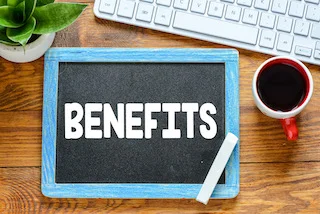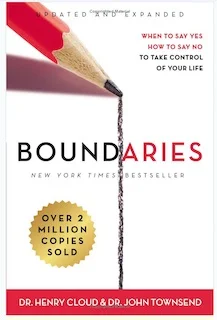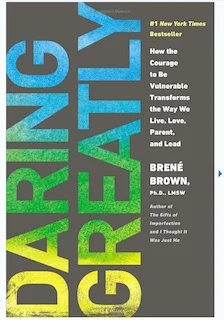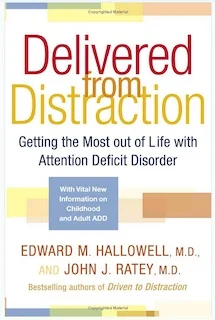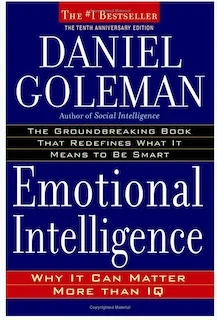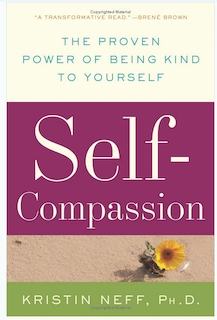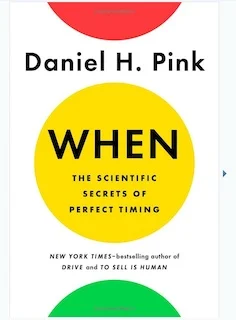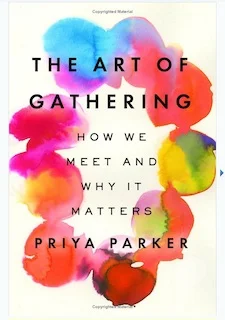Monday, August 26, 2019
welcome to the leADDership brief
A weekly newsletter for creative and innovative people, like you, with ADHD who want timely, helpful, and interesting resources
for leading and living well with ADHD.
“Not all readers are leaders, but all leaders are readers.”
READING AND LEARNING
I’ve been a reader since I was a small girl. I am fascinated by the world of words, whether spoken, written, or performed. I read everything I could get my hands on. I read the Britannica Encyclopedias my parents, and every other 70s parents, bought and proudly displayed on an open shelf. I read our local newspaper after my parents finished with it. I read catalogues. I spent my allowance on books. I earned a certificate in the 5th grade for having read the most books in our school library. In short, I’ve been a book nerd my whole life.
Books have been my friend, teacher, and place of escape for as long as I can remember being on this planet. Books have opened up worlds to thoughts, ideas, possibilities, and creativity, they’ve challenged my perceptions, and invited me to take bold and courageous steps in my life. I’ve had to upgrade the storage on my kindle many times over. I am often reading and/or listening to three to five books at at a time: books on leadership, coaching, personal development, novels, biographies, current affairs, etc.
I realize that not all of us are readers. I have a friend who abhors reading and will avoid it at all costs. She managed to get her masters degree by reading as little as possible and still graduate with top marks. How she did that is a mystery to me.
But, as Harry Truman said, “not all leaders are readers, but all leaders are readers.” If you want to thrive as a leader then reading is key to your leadership development.
The great news is that in 2019 we have many options for “reading” that will help us thrive and improve as a leaders:
Traditional books in hardcover or paperback
E-readers
Audio books
Podcasts
YouTube
Ted Talks
Not sure how to incorporate more reading into your life? Here’s a few ideas to get you started:
Join a book club or reading group, on line or in person. I belong to a three book groups: one is for professional growth and development, one is focused on social justice and action, and the other is focused on fiction. Two are in person and one is online and I gain insight, new perspective, and am generally motivated and energized in different ways by all three groups.
Vary your reading from professional development to science fiction to a murder mystery or cookbook. Whatever peaks your interest take the time to read or listen to it.
Ask others what they are reading and why, ask for recommendations on topics that interest you.
Get a library card and check out some books that seem interesting or have been recommended to you. **If you forget to return books like me, because you’re ADHD, set an alarm and reminder of the due date. Put books that need to be returned by your door so you won’t forget them. Most libraries have a drive-up book return making it much easier to get books returned before racking up fees.
Reading and learning in your preferred learning style and the format that works best for you will help you lead and thrive in your ADHD life.
Here are seven benefits to learning and reading, whether audio, visual, or print, that will give you the leadership advantage:
Personal Growth and Development:
Actively growing and improving in all areas of your development, working on yourself at all levels to enrich your life and relationships, to make them more productive, fulfilling and meaningful. Personal growth and development is the journey towards becoming more mature, successful and happy.Knowing and understanding who you are, your personality and preferences, what you do well, how you communicate, your processing style, etc. are all things we can learn from the volumes of great books and research on the market. I’ve listed my favorites below.
Reading novels can improve empathy and understanding of social cues, allowing a leader to better work with and understand others.
Improves Memory and Strengthens Your Brain:
When you read a book, your brain is doing a lot more than just deciphering words on a page. Reading is more neurobiologically demanding than processing images or speech. It’s a neural workout. As you read, disparate parts of your brain—such as vision, language, and associative learning—work together. The act of reading helps to heighten overall brain function and increase memory.According to one study, reading can help protect memory and thinking skills, especially as you age. In another study scientists at the University of California, Berkeley, found that reading can lower the levels of beta-amyloid, a brain protein involved in Alzheimer’s, by keeping the mind cognitively stimulated.
Communication:
Reading and listening to books increases and expands your vocabulary. Reading forces us to look at words that we might not have seen or heard before or recently. In a paper by Anne E Cunningham’s paper What Reading Does For the Mind she found that reading increases your emotional intelligence so that you can choose the words and phrases you want to use at work, home, and play with care and proficiency. Your words will carry more weight, empathy, and motivation.Critical Thinking:
In the same paper Cunningham’s studies found that analytical thinking is boosted by reading. Reading improves general knowledge, and increases your ability to spot patterns quicker. If you can spot patterns quicker, your analytical skills receive a boost. Reading also increases your judgement and problem solving skills.Opens up New Worlds:
Reading opens up words of thought and ideas we may never have considered before. Whether the book is on leadership or a work of fiction, reading invites us to consider the perspectives and lived experiences of other people and places. I re-read A Wrinkle In Time by Madeleine L’Engle almost every year just so I can encounter her world and the people who populate that world. It was the first book I read that catapulted me out of my every day, Midwestern, earthbound, existence.Energy and Motivation:
A great book can fire you up. Most of the big changes I’ve made in my life have come from reading or listening to a book by an author I respect and trust. Not every book that inspires me is about leadership. Books about overcoming or travel and adventure have motivated me to take risks I wouldn’t have before, like the exhilaration of zip-lining across a canyon over a crystal clear lake in Hawaii.Creativity:
Reading or listening to books stirs up your creativity, sparking interest and ideas for your own life. Perhaps you listen to a book about organization and your brain is stimulated by the ideas and ways you could organize a space in your home or office. Or you read a book about how someone overcame adversity and are encouraged to create ways to overcome your own current struggles.
MY TOP TEN BOOKS TO
READ OR LISTEN TO
Only one of these books is specifically about ADHD but all have helped me to thrive in my ADHD life. I’ve adapted the concepts to fit me and my brain. You can tailor the concepts and ideas to your life as well.
The titles are available in traditional paperback or hardcover, kindle or nook, and audio book. Click on the book image to take you to an Amazon link and choose your preferred format if you want to purchase any book.
When the authors have a TED Talk or related YouTube video I’ve included the link.
This is a book I re-read and refer to again and again. Dr.s Cloud and Townsend are the leading experts on this topic and provide tools and insights that reader or listeners can easily adapt. In it you will learn what boundaries are, types of boundaries, and how to take control of your life. While the book doesn’t directly address taking control of your thoughts, the section on time really helped me to understand how often I was letting my own thoughts and imaginations take up time and space in my day. This book has equipped me to put healthy boundaries in my ADHD approach to life.
More than anything, this book taught me how to say “no" at a time when I couldn’t determine what mattered and what didn’t in my life so I said “yes” to everything and was overwhelmed, anxious, and inefficient. Learning how to say no and what to say no to brought peace, focus, and a sense of purpose to everything I was choosing to do.
From the book: “Daring Greatly is not about winning or losing. It’s about courage. In a world where “never enough” dominates and feeling afraid has become second nature, vulnerability is subversive. Uncomfortable. It’s even a little dangerous at times. And, without question, putting ourselves out there means there’s a far greater risk of getting criticized or feeling hurt.”
In no way is this a book about ADHD, but Brene` Brown has helped me to embrace and love who I am as an adult with ADHD. She’s given me language to express who I am and how I approach life without having to use specific ADHD words. And she’s given me the courage to lead according to my preferences and strengths.
If you only read one book about ADHD this it the one to read. I learned more about the dynamics and realities of living and thriving with ADHD than any other book I’ve read on this specific topic. As Hallowell and Ratey point out, “attention deficit disorder” is a highly misleading description of an intriguing kind of mind. Original, charismatic, energetic, often brilliant, people with ADD have extraordinary talents and gifts embedded in their highly charged but easily distracted minds. Tailored expressly to ADD learning styles and attention spans, Delivered from Distraction provides accessible, engaging discussions of every aspect of the condition, from diagnosis to finding the proper treatment regime.
A common denominator among my ADHD clients is their keen awareness of their own “defects and faults” as well as a deep fear regarding their intelligence or smarts. ADHD kids don’t learn the same and often found the classroom boring and claustrophobic. This book was a life-giving insight into a different way to define intelligence.
Through vivid examples, Goleman delineates the five crucial skills of emotional intelligence, and shows how they determine our success in relationships, work, and even our physical well-being. What emerges is an entirely new way to talk about being smart.
The best news is that “emotional literacy” is not fixed early in life. Every parent, every teacher, every business leader, and everyone interested in a more civil society, has a stake in this compelling vision of human possibility.
I’ve read many books on communication and this one is the best of the bunch. Her opening line described my life: I was having repeat conversations with colleagues, family, and friends that were failing to produce the results I wanted. According to Scott a fierce conversation is one in which we come out from behind ourselves into the conversation and make it real. As Scott says, “the conversation is the relationship” and when we can learn how to effectively get our message across in both our personal and professional lives we can transform our relationships. In the book she teaches you her Seven Principles of Fierce Conversations but it’s her distillation of preparing for a fierce conversation that I use on a daily basis:
What’s the issue
What’s my desired outcome
What solutions am I offering
What resources do I/we need
Adults with ADHD spend much of their life vitally aware of their imperfections, discovering that these could be gifts to embrace was, well a gift. This is another winner from Brene` Brown who guides you to personal development and growth with her characteristic heartfelt and honest storytelling. The book teaches you ho to release your definition of an “imperfect” life and embrace living authentically. Her ten guideposts” for authenticity and vulnerability have taught me how to live and thrive in my ADHD life.
I’ve referenced this book many times in the newsletter. If you only read or listen to one book from this list, pick this one! Dr Neff’s groundbreaking research and findings about self-compassion and kindness have done more to help me heal and thrive in my ADHD life than any other book.
In his book Pink shares his extensive research and the science behind why we use time, how we use time, and when we use time. If we’re making an important life decision, what we decide obviously requires careful consideration. But what about when we decide? Could the time of day that we make a decision be significant? Could the time of day affect how well we learn or do our work? Does it really matter when we have that first cup of coffee?
In this intriguing book, Pink examines the importance of good and bad timing. He begins by explaining how our individual chronotype determines both our mood and our ability to perform at any given time of the day: how it affects our professional and our ethical judgements, as well as our physical function.
While this book doesn’t address the very real issues adults with ADHD have with time, the research, biology and science about time are easily adaptable to our unique way of experiencing time.
Parker draws on her expertise and extensive experience as a facilitator of high powered gatherings world wide to show us what makes a gathering a success or fall flat. At a time when coming together is more important than ever, Parker sets forth a human-centered approach to gathering that will help everyone create meaningful, memorable experiences, large and small, for work and for play.
For my “NOW/NOT NOW” brain, this book has helped me to identify WHY I am participating in any gathering, from date-night to leading a conference and WHY I AM NOT at that gathering. Knowing that I am gathering with my husband on date-night to enjoy one another’s company and catch-up on the week and NOT to confront him about some small irritant has helped my brain to focus and enjoy the moment. Or knowing WHY I am attending a meeting of any sort keeps me in my lane and out of trouble.
What Else Do You Need To Know?
Coach Pam



